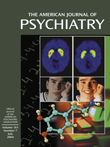Which Factors Influence Psychiatrists’ Selection of Antidepressants?
Abstract
OBJECTIVE: There is little empirical evidence to guide clinicians in choosing among the diverse array of antidepressants available. In the absence of replicated empirical research guiding the selection of antidepressants, it is of interest to examine what factors psychiatrists consider when prescribing antidepressants. METHOD: For 1,137 depressed patients who received a new antidepressant prescription, the treating psychiatrist completed a 43-item questionnaire listing factors that might have influenced the choice of antidepressant medication. The questionnaire was filled out immediately after an antidepressant was prescribed to treat a depressive disorder. RESULTS: The most common factors influencing antidepressant selection were the avoidance of specific side effects, the presence of comorbid psychiatric disorders, and the presence of specific clinical symptoms. Prior treatment history, including prior positive or failed response to a drug, was the next most frequently endorsed factor influencing medication choice. Some factors that have been commonly discussed in the literature, such as concern about discontinuation syndrome and drug-drug interactions, rarely influenced antidepressant selection. CONCLUSIONS: Because relatively little research has examined clinical features associated with differential response to the newer generation of antidepressants, a study of psychiatrists’ prescribing practices highlights priorities for future controlled research. Our results suggest that two priority areas are the treatment of depression with coexisting anxiety symptoms/anxiety disorders and the influence of particular symptoms on response to different medications.



